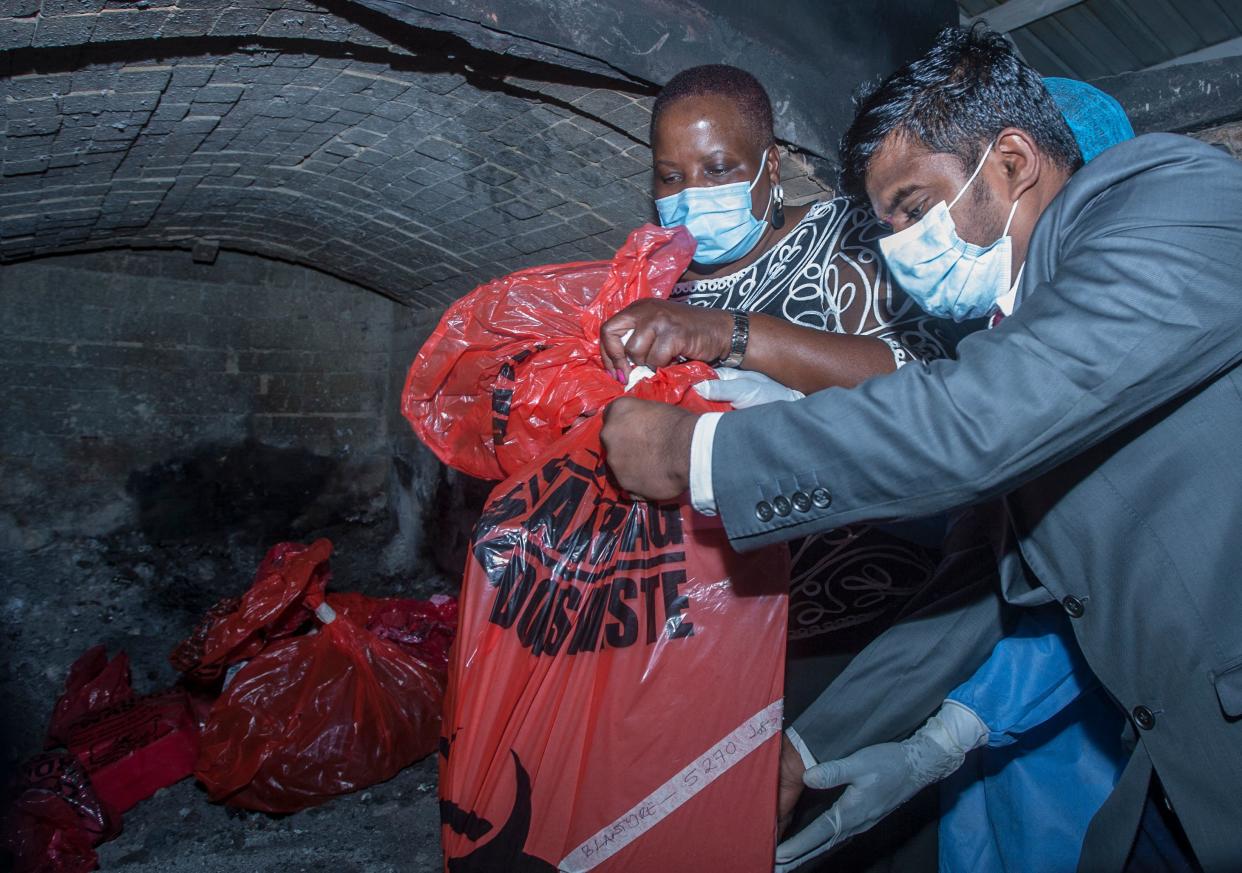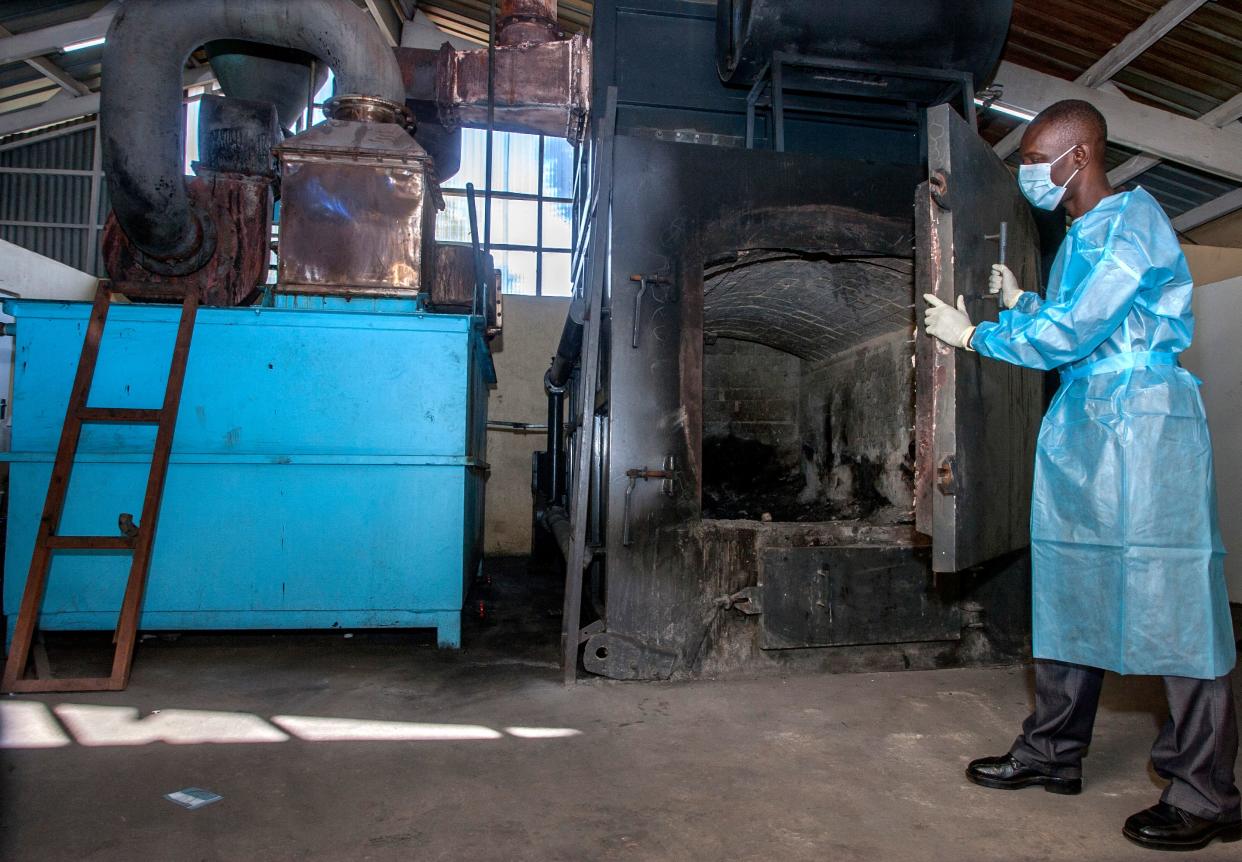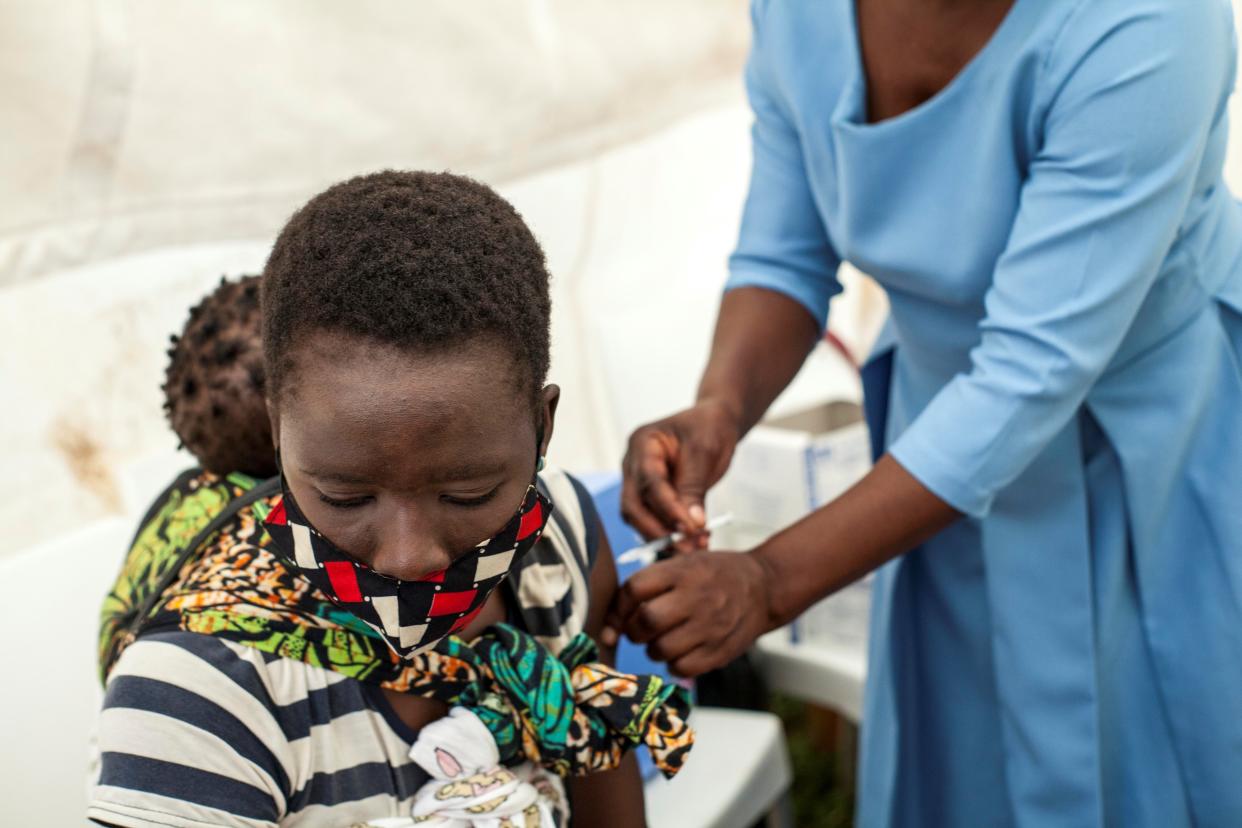African country where less than 2% of people are vaccinated publicly burns 19,000 AstraZeneca jabs

Malawi has publicly burned thousands of COVID-19 vaccines after they reached their expiry date.
On Wednesday, the African country destroyed 19,610 Oxford/AstraZeneca doses that arrived on 26 March and expired on 13 April.
Malawi managed to deploy about 80 per cent of the batch, which included 102,000 vaccines in total.
John Nkengasong, director of the Africa Centres for Disease Control and Prevention (Africa CDC), part of the African Union (AU), and the World Health Organization (WHO) had urged African countries not to waste the expired vaccines.
Nkengasong said last month the shots could be used until 13 July, based on a further analysis conducted by manufacturers the Serum Institute of India (SII).
But on Monday, WHO issued new advice saying the vaccines should not be used after their expiry date.
Watch: Expired vaccines burned in Malawi
The Malawian government said it would not give expired vaccines to its citizens and decided to burn the doses publicly to restore trust after confusion over whether they could be used safely.
The country’s health minister Khumbize Chaponda, at Kamuzu Central Hospital in the administrative capital Lilongwe, said: “We are destroying (them) because, as government policy... no expired vaccine has ever been used.”
She then threw the shots, which were wrapped in red plastic bags, into an incinerator, causing a cloud of dark smoke to billow from its chimney.
Chaponda added: “On behalf of the government I assure all Malawians that no one will be given an expired COVID vaccine.”
Malawi's health ministry said the country had administered 335,232 vaccine doses as of 18 May, and recorded 34,231 COVID infections and 1,153 deaths.
Less than 2% of people in the country are vaccinated.
African countries have struggled to secure enough COVID-19 vaccines to roll out mass immunisation.
Many rely on donations from global vaccine scheme COVAX, which is co-led by the WHO and partners, including the Gavi vaccines alliance.


On Tuesday, Professor Andrew Pollard, director of the Oxford Vaccine Group and leader of the clinical trials for the AstraZeneca jab, said giving coronavirus jabs to young and healthy people in wealthy countries while developing countries struggle is “morally wrong”.
He told the All-Party Parliamentary Group on Coronavirus: “When you look at the overall aim of a vaccination programme – it’s to stop people dying – it’s the over 50s, the healthcare workers and those with a pre-existing health condition.
“Yet there are many unvaccinated people in the world, while in wealthier countries, we are looking to vaccinate children.”
In January, Malawian president Lazarus Chakwera rolled out the country’s first set of anti-coronavirus restrictions, including a limit on gatherings and mandatory face masks.
Unlike the rest of the continent, daily life had normally been unfolding in the southern African country since its High Court barred the government from confining citizens to limit the spread of Covid-19.
Judges ruled in April that insufficient measures were in place to cushion loss of livelihood in one of the world's poorest countries, where most people work informally.
Watch: Do coronavirus vaccines affect fertility?



